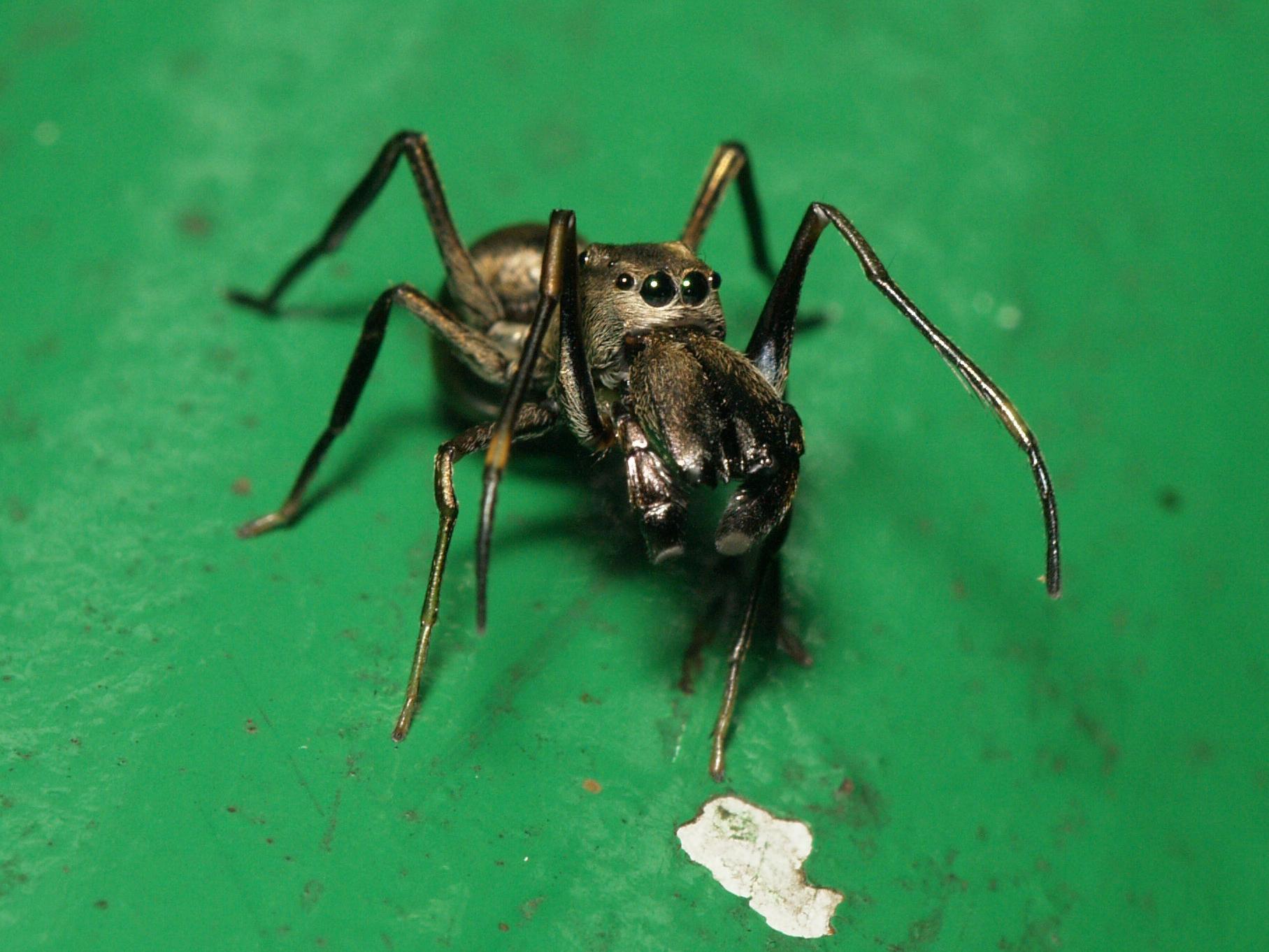Baby spiders suckle ‘spider milk’ from their mothers until they leave the nest, study finds
Fluid secreted by females contains nearly four times protein of cow’s milk

Some baby spiders rely on their mothers feeding them with special “spider milk”, a new study has revealed.
Scientists found the nutritious fluid contains nearly four times the protein of cow’s milk, and appears to nourish the young until they reach maturity.
While mammals, including humans, provide their offspring with milk to help them develop, the behaviour is rare in other parts of the animal kingdom.
To identify the unusual phenomenon, a Chinese research team closely examined the nesting habits of Toxeus magnus, a variety of jumping spider.
They found that the young spiders, known as spiderlings, lap up nutritious milk droplets secreted from the mother’s underside for nearly 40 days before striking out on their own.
As the spiderlings suck milk from a part of their mother known as the “epigastric furrow”, through which eggs emerge, the scientists suggested the liquid may have originally evolved from unfertilised eggs.
“It’s a puzzling observation for a species assumed to be noncolonial,” said Dr Chen Zhanqi, who led the research.
“It’s possible that the jumping spider might provide either prolonged maternal care or delayed dispersal. We decided to test it.”
In their study, published in the journal Science, the team observed young spiders as they were raised in a laboratory setting.
They watched as the mother initially left drops of the milk around the nests for their offspring to find, before they graduated to directly sucking from her body.
Creatures ranging from pigeons to cockroaches are known to offer forms of specialised food to their young while they are growing up, but the parent-offspring bond is seldom a strong as seen in mammals.
Bizarrely, jumping spider mothers showed similar commitment to mammals in providing for their young even once they had reached sexual maturity.
The scientists found that while nursing was not critical to offspring’s survival after becoming independent, their mother’s presence greatly improved their overall health and adult survival.
Based on their findings, the scientists said there should be a revaluation of milk provisioning and parental care in a variety of non-mammal creatures.
Join our commenting forum
Join thought-provoking conversations, follow other Independent readers and see their replies
Comments
Bookmark popover
Removed from bookmarks